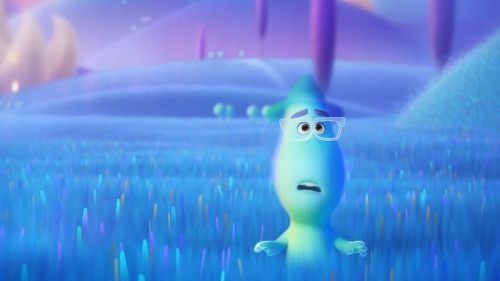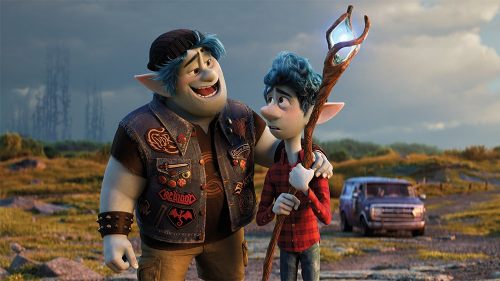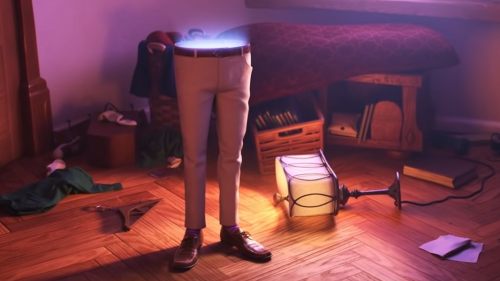TOY STORY 4 Review: Finally, You Got An End In Me
It sounds strange to want a sequel that isn’t as good as its predecessors, but in the case of Toy Story 4, I was really hoping for one that just didn’t try to be. Toy Story 2 started as a straight-to-video quickie that went on to be included among The Empire Strikes Back and The Godfather Part II as one of the best follow-ups of all time. Toy Story 3, depending on who you ask, qualifies as one of the most devastating emotional experiences of moviegoers’ lives. And after 24 years, I am ready - no, eager - to bid farewell to Woody, Buzz and all of the rest, if only because they keep saying goodbye at the end of each adventure and then come back for more.
With Toy Story 4, director Josh Cooley delivers that coup de grace in a way that thankfully doesn’t yet again duplicate the same plot, mostly avoids revisiting the same themes, and best of all, provides a feeling of emotional closure that isn’t belabored with sentimentality. Picking up several years after Bonnie adopts Andy’s toys at the end of Toy Story 3, Woody has become something of a helicopter parent for the young girl, desperate to protect her from discomfort or unhappiness even as his own position in the pecking order of her favorite toys continues to fall. Woody nevertheless becomes fixated on this responsibility after Bonnie’s solution to loneliness during kindergarten orientation is building her own companion, a makeshift toy named Forky (Tony Hale) who insists that he is literal trash and becomes determined to reach that great dustbin in the sky - or really any nearby receptacle into which he can throw himself.
During a road trip in Bonnie’s family RV, Forky escapes, and Woody sets off after him in pursuit, eventually arriving at an antique store where they meet a doll named Gabby Gabby (Christina Hendricks) fixated on repairing her pull-string voice box so she can at long last become a child’s plaything. Determined to swap her voice box for Woody’s, Gabby holds Forky hostage, forcing the sheriff doll to mount a desperate rescue plan that requires the help of Buzz (Tim Allen) and a small team of new pals including stuffed-animal pair Ducky (Keegan-Michael Key) and Bunny (Jordan Peele), daredevil toy Duke Caboom (Keanu Reeves), miniature police officer Giggle McDimples (Ally Maki), and finally, the long lost Bo Peep (Annie Potts), who built a life full of adventure for herself after Andy’s sister Molly outgrew her.
As the rest of Bonnie’s toys try to stall her parents from leaving without their lost pals, Woody and Bo race to put his well-intentioned but woefully unprepared plan into action, even as she teaches him some important lessons about what it truly means to be a “lost toy,” and how best to be a companion for children who may eventually discard you, but will always need friends like them.
Saying goodbye to beloved characters is always hard, and moreso than money or even clear, strong, creative new stories, I think that’s why Pixar has returned to this world over and over again over the course of the life of the company. But Toy Story 4’s most powerful theme - Woody’s struggle for relevance, and his desperation to matter in lives and a culture that has passed him by - also feels like its most metatextually honest. After four films and 24 years, what the conspicuously adult Toy Story has to say to children, its onetime target audience, seems less important than ever; Pixar has become an institution, a monolith for grown-up ideas described as family-friendly and disguised with bright colors and beautiful animation. But making another one of these movies, no matter how well, is not going to recapture that emotional energy, much less return them to the peaks they enjoyed a decade ago when every new adventure invigorated audiences, pushed the envelope, and changed perceptions industry-wide.
In which case, the best thing to do is create something that is very deliberately not trying to draw from that emotional well, even if it is re-examining the characters that filled it with substance. This is where Toy Story 4 succeeds. Despite a screenplay by Andrew Stanton and Stephany Folsom featuring story by credits from six other writers (Cooley, John Lasseter, Valerie LaPointe, Rashida Jones, Will McCormack and Martin Hynes), the film’s plot is circular, even repetitive, as Woody, Bo and Buzz go back and forth between Bonnie’s family’s RV, the antique store, and a nearby carnival while they work out their fears and anxieties. Woody’s insecurities are well-documented - they provide the backbone for the original film’s story - but here he’s sort of actively wrong about, well, almost everything in a way that could easily be construed as another milquetoast Hollywood genuflection to female empowerment. And yet, this all works together in a way that turns what could have been another overwrought meditation on parenting, mortality, and the passage of time into a deft journey of self-discovery for a character who has constructed his identity exclusively on the foundation of what he has done, and hopes to do, for others.
Mind you, I like Toy Story 2 very much (“Jessie’s Song” is one of those “automatic cry” sequences for me), and Toy Story 3, despite having an uninspired, identical plot to its predecessor, delivers some really powerful moments. But 4 foregoes all of that self-important introspection for a story that certainly has emotional weight but achieves it naturally rather than funneling audiences toward it like, well, a conveyor belt shepherding toys inexorably towards an incinerator. It’s a movie about good intentions towards others but also essential acts of self-preservation; about fears of letting go, as well as the dangers of holding on too tightly; and ultimately, about celebrating special experiences, and learning when it’s time to move on. In which case, Cooley’s well-told, exquisitely beautiful finale is perhaps only “very good” in comparison to the Toy stories that came before it, but a victory lap feels like more than enough - and the best way to walk away from the franchise - after 24 years and three bona fide home runs.



